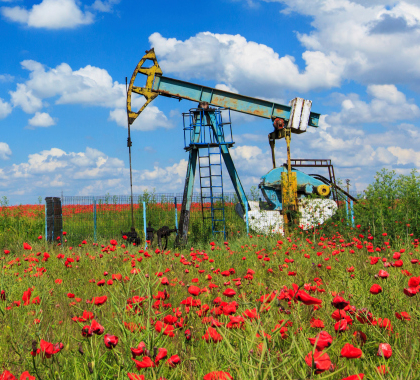The Oregon House of Representatives passed a bill creating a 10-year ban on hydraulic fracturing, commonly called “fracking,” throughout the state.
Currently, Oregon has no wells using this process, though the U.S. Geological Survey estimated in 2014 there was a potential for coalbed methane fracking in the Willamette Valley.
Hydraulic fracturing involves injecting a mixture of water, sand, and trace amounts of chemicals to create fissures in deep-underground shale deposits to allow oil and natural gas trapped in hard rock to move toward the surface for collection.
Energy producers have utilized fracking for about 60 years, and since having been combined with new technological innovations, such as horizontal drilling and computer-assisted underground monitoring, fracking has unlocked vast reserves of oil and natural gas known to exist for decades in shale formations throughout the United States but previously not extractable. In the past decade, fracking has dramatically increased U.S. natural gas and oil production, resulting in lower prices.
Oregon’s House passed the moratorium on April 25 despite numerous academic and government studies having found no link between fracking and groundwater contamination or air pollution.
Just ‘Sending a Message’
Isaac Orr, a research fellow at The Heartland Institute, which publishes Environment & Climate News, says the ban is mostly meant to make a political statement.
“Other states, like New York and Vermont, give political cover to Oregon’s moratorium, so I think it’s more about sending a message to the industry, or big oil, or whomever you pretend you’re sending a message to,” Orr said.
Oregon doesn’t have the shale plays for oil and gas several other states do, Orr says. The state has the potential for coalbed methane extraction, but it doesn’t have an overwhelming need for it now because it has the infrastructure in place to import natural gas from Canada.
“The impact of a fracking ban is maybe six or seven years down the line,” Orr said. “As more [liquid natural gas] export terminals come online, you will start to see more upward pressure on gas prices. Then the people from Oregon might want to produce some for themselves.
“It’s bad public policy, not based on science,” Orr said.
Bored Legislators Responsible?
The Oregon fracking ban is the result of posturing by legislators who have run out of things to do and are bored, says John Charles Jr., president of the Cascade Policy Institute.
“There’s a big budget battle going on, but most of the action is taking place among a few legislators in some private back rooms, where deals are being cut,” said Charles. “So, out of 90 legislators, probably 75 of them are irrelevant. They are literally bored with not much to do, so they come up with this stuff.
“Committees come up with their own agendas because they kind of like to think they are relevant, and environmental activists in Oregon are always envisioning themselves competing with California and some other states to see who can be the more radical green,” Charles said.
“This is just another merit badge they can put on their sash and say they’re adopting this solution to what in reality is a non-problem,” Charles said. “Oregon is not an oil producer anyway, yet they can feel good about themselves with a fake accomplishment.”
‘Anti-Science’ Bans
The bill is another example of what James Taylor, president of the Spark of Freedom Foundation, calls “snowflake” energy policy run amok.
Despite federal, state, and local governments conducting literally thousands of groundwater tests near fracking sites, there has never been a single documented instance of the fracking process resulting in groundwater contamination, Taylor says.
“Anti-science fracking bans are nothing more than merchants of fear who ensure their communities will never benefit from the economic and environmental benefits of clean-burning, environmentally friendly natural gas,” Taylor said.
Those benefits are enormous, Taylor says.
“That is $15 billion, or $3,000 per Pennsylvania household, of wealth creation in 2016 alone,” said Taylor. “The direct and indirect economic benefits of fracking include natural gas lease sales, royalties, and fees; lower individual tax rates; and increased funding for a bounty of government services, such as education and health care.
“Oregon legislators claim they banned fracking out of ‘precaution,'” Taylor said. “However, states that ban fracking are merely taking a ‘precaution’ against higher living standards.”
Kenneth Artz ([email protected]) writes from Dallas, Texas.





